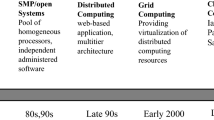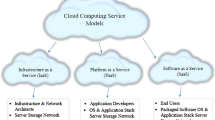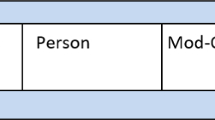Abstract
In the current cloud computing development era, security and integrity restrictions on the users and service providers are at a constant increase. Users using cloud storage enjoy remote data storage with high-quality on-demand applications and services but at the cost of local data storage and maintenance burden. Lack of data integrity protection is the main reason causing difficulty in physical possession of the user’s outsourced data. The main setback behind this lack of integrity is the need for a clear-cut cloud computing public audibility for cloud data storage, wherein the users assign a third-party auditor to check for the integrity of outsourced data. The aim of this paper is to suggest an efficient cloud storage system with security restrictions using the Hadoop framework, centering on Apache Ambari. To demonstrate, a five-stage security check framework is proposed with the Kerberos protocol, Knox API, Apache Ranger, and encryption techniques are deployed in a single framework i.e., Apache Ambari. Ambari framework is used to enable those techniques to provide multi-layered protection for the data stored in the Hadoop distributed file system. The results prove that the proposed four-stage security framework effectively increases the data integrity of the cloud users.





Similar content being viewed by others
References
Voorsluys W, Broberg J, Buyya R (2011) Cloud computing principles and paradigms. Wiley, Hoboken
Shawish A, Salama M (2014) Cloud computing: paradigms and technologies. Springer, Berlin, pp 67–39
Diwaker C, Dembla P (2014) Survey on cloud computing. Int J Adv Res Comput Sci 5(5)
Deepa R, Dheeba J (2019) Resource allocation in cloud computing for energy efficiency. Int J Eng Adv Technol (IJEAT). 8(6)
Mthunzi SN, Benkhelifa E, Bosakowski T, Guegan CG, Barhamgi M (2020) Cloud computing security taxonomy: from an atomistic to a holistic view. Future Gener Comput Syst 107:620–644
Coppolino L, D’Antonio S, Mazzeo G, Romano L (2017) Cloud security: emerging threats and current solutions. Comput Electr Eng 59:126–140
Garg N, Bawa S (2016) Comparative analysis of cloud data integrity auditing protocols. J Netw Comput Appl 66:17–32
Shaikh AH, Meshram BB (2021) Security issues in cloud computing. In: Intelligent computing and networking. Springer, Singapore, pp. 63–77
Singh A, Chatterjee K (2017) Cloud security issues and challenges: a survey. J Netw Comput Appl 79:88–115
Shen J, Shen J, Chen X, Huang X, Susilo W (2017) An efficient public auditing protocol with novel dynamic structure for cloud data. IEEE Trans Inf Forensics Secur 12(10):2402–2415
Tunc C, Hariri S, Merzouki M, Mahmoudi C, De Vaulx FJ, Chbili J, Battou A (2017) Cloud security automation framework. In: 2017 IEEE 2nd international workshops on foundations and applications of self* systems (FAS* W). IEEE, pp. 307–312
Li Y, Yua Y, Yang B, Min G, Wu H (2016) Privacy preserving cloud data auditing with efficient key update 0167–739X/©. Elsevier, Amsterdam
Alam T (2020) Cloud computing and its role in the information technology. IAIC Trans Sustain Digit Innov (ITSDI) 1(2):108–115
Abdullah S, Bakar KAA (2018) Security and privacy challenges in cloud computing. In: 2018 Cyber resilience conference (CRC). IEEE, pp. 1–3
Coppolino L, D’Antonio S, Mazzeo G, Romano L (2016) Cloud security: emerging threats and current solutions 0045–7906/©. Elsevier Ltd, Amsterdam
Venkatraman K, Geetha K (2019) Dynamic virtual cluster cloud security using hybrid steganographic image authentication algorithm. Automatika 60(3):314–321. https://doi.org/10.1080/00051144.2019.1624409
Majumdar S, Madi T, Wang Y, Jarraya Y, Pourzandi M, Wang L, Debbabi M (2017) User-level runtime security auditing for the cloud. IEEE Trans Inf Forensics Secur 13(5):1185–1199
Worku SG, Xu C, Zhao J, He X (2014) Secure and efficient privacy-preserving public auditing scheme for cloud storage. Comput Electr Eng 40(5):1703–1713
Aljawarneh SA, Yassein MOB (2016) A conceptual security framework for cloud computing issues. Int J Intell Inf Technol (IJIIT) 12(2):12–24
Mall S, Saroj SK (2018) A new security framework for cloud data. Proc Comput Sci 143:765–775
Zhao J, Wang L, Tao J, Chen J, Sun W, Ranjan R, Georgakopoulos D (2014) A security framework in G-Hadoop for big data computing across distributed Cloud data centres. J Comput Syst Sci 80(5):994–1007
Sirohi P, Agarwal A (2015) Cloud computing data storage security framework relating to data integrity, privacy and trust. In: 2015 1St international conference on next generation computing technologies (NGCT). IEEE, pp. 115–118
Chang V, Ramachandran M (2015) Towards achieving data security with the cloud computing adoption framework. IEEE Trans Serv Comput 9(1):138–151
Jouini M, Rabai LBA (2019) A security framework for secure cloud computing environments. In: Cloud security: concepts, methodologies, tools, and applications. IGI Global, pp. 249–263
Chang V, Kuo YH, Ramachandran M (2016) Cloud computing adoption framework: a security framework for business clouds. Future Gener Comput Syst 57:24–41
Balusamy B, Venkatakrishna P, Vaidhyanathan A, Ravikumar M, Munisamy ND (2015. Enhanced security framework for data integrity using third-party auditing in the cloud system. In: Artificial intelligence and evolutionary algorithms in engineering systems. Springer, New Delhi. pp. 25–31
Funding
Not applicable.
Author information
Authors and Affiliations
Corresponding author
Ethics declarations
Conflict of interest
The authors declare that there is no conflict of interest regarding the publication of this article.
Data availability
Not applicable.
Code availability
Not applicable.
Rights and permissions
About this article
Cite this article
Mishachandar, B., Vairamuthu, S. & Pavithra, M. A data security and integrity framework using third-party cloud auditing. Int. j. inf. tecnol. 13, 2081–2089 (2021). https://doi.org/10.1007/s41870-021-00738-3
Received:
Accepted:
Published:
Issue Date:
DOI: https://doi.org/10.1007/s41870-021-00738-3




